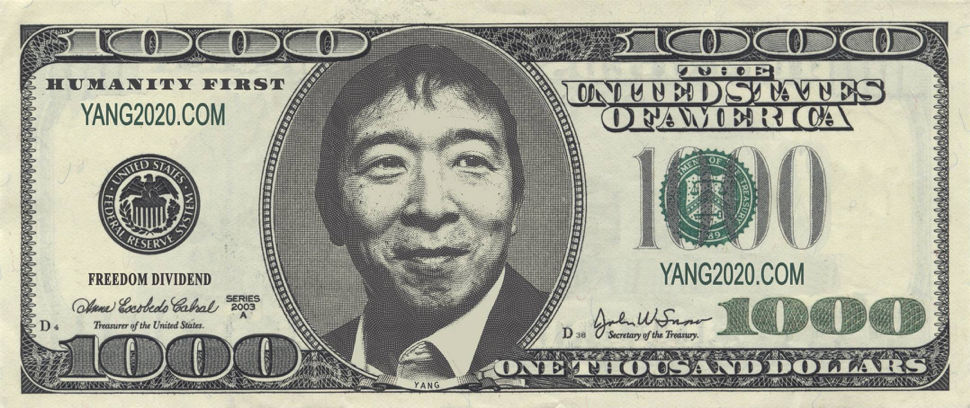Chris Cutrone
Platypus Review 145 | April 2022
BENEDICT CRYPTOFASH CRITICIZES me for using the “Left” as a concept for its alleged idealism and metaphysical essentialism.[1] But by identifying the “Left” with a group of people, e.g. members of Jacobin/DSA et al., Cryptofash reifies the phenomenon of the Left, and in the worst possible way, by personalizing it. But even in colloquial discourse it is well understood that Left and Right represent principles not people. This is why someone who was a Leftist can become a Rightist: he can change his mind.
The Left is not a thing but rather expresses a process; moreover the Left refers to the tendency or force of a historical process. Aaron Benanav criticized Platypus for its preoccupation with the Left rather than with class — similar to the criticism of Platypus by my old ex-comrades of the Spartacist League[2] — and referred as Cryptofash does to the Left as the Left-wing of capitalism, as if this disqualified the concept.[3] But Marxism always considered itself to be the consciousness of the historical tendency of capitalism that pointed beyond it and that was necessary in order to actually get beyond it. For instance, Lenin considered the Marxist approach to socialism to be overcoming capitalism on the basis of capitalism itself. But that tendency was self-contradictory in that it pointed both further beyond capitalism but also back to the reconstitution of its historical roots in bourgeois society — the society of labor. The modern labor movement of the proletarianized working class was itself the core engine of capitalist development, driving the industrial development of production, which contradicted and undermined and destroyed its bourgeois social relations, producing crisis. The problem with the present Left — and for the past hundred years — is that it no longer expresses the emerging and developing consciousness of the subject of a historical tendency — proletarian socialism — but rather the memory of something that proceeds today seemingly objectively — without a corresponding political movement aiming to go beyond it. In the absence of such a subjective consciousness of history as a phenomenon in practice, capitalism itself appears to regress.[4] This regression is something that can be observed in both long-term and short-term political processes.
In my previous article in this thread, I tried to explain very briefly the mind of original historical Marxism as a political movement.[5] I will now try to illustrate the point with the example of the leader of Jacobin/DSA, Bhaskar Sunkara, who recently took over the historically progressive liberal Nation magazine. Sunkara has apparently changed since he published an article in The Nation, “Reclaiming Socialism” (2015), in which, under the influence of my teachings in Platypus, he cited Kołakowski’s “Concept of the Left” to justify his political vision.[6] Back then, Sunkara’s influences were Lenin and Kautsky (from “when Kautsky was still a Marxist,” as Lenin put it[7]). But this is no longer the case.
More recently, Sunkara claimed that he was less a follower of Kautsky than of Ralph Miliband. This is in keeping with the 2017 statement written by Vivek Chibber to distinguish Jacobin/DSA’s perspective from that of the Marxism of Kautsky and Lenin, “Our Road to Power” — by contrast with Kautsky’s 1909 The Road to Power, which Lenin followed in the Revolution of 1917.[8] I addressed this on the 150th anniversary of Lenin’s birth, to which Sunkara and Leo Panitch replied, defending Miliband’s “Marxist” bona fides against my characterization of him as a “liberal” — a proponent of a liberal democratic road to socialism, very much like the reformist Revisionism of Eduard Bernstein et al. from more than fifty years earlier.[9] Miliband’s idea, with which Sunkara, Chibber and Panitch agreed, was that the capitalist state could not be overthrown and replaced by the working class’s own organizations in the dictatorship of the proletariat, but had to be worked through existing liberal democratic electoral means to a potential transformation of society — the endless dream of reformist social democracy (through the Democratic Party of all vehicles!) that has ensnared the Millennial Left like the generations before them. Most recently, Sunkara said that socialism was probably ultimately impossible in the U.S., but at least some “social democracy” was possible, by which he meant public sector and welfare state expansion.[10] This was an abandonment of Marxist ideas, or at least of their current relevance politically.
Perhaps Sunkara thinks he has remained consistent, but there seems to be some change of mind. Perhaps not in principle — perhaps he still finds socialism desirable but not possible, and ultimately not necessary to meet the needs of the present — but certainly in terms of practical politics and what he takes to be the “art of the possible,” which is the essence of politics. In so doing, he has abandoned the Left’s role in pushing — and transcending — the envelope of possibility and realizing hitherto unrealized potentials, not even necessarily in changing society but merely in renewing the Left and socialism or Marxism as a political tendency. Sunkara has abandoned the task of building a socialist party. Instead, Sunkara et al. among the Millennial Left have fallen back upon the dead traditions of the past post-Marxist “Left” — accepting and reinforcing the liquidation of proletarian socialism over the course of the past century, since Lenin’s time. This is why and how it takes the form of calls for a “new New Deal” etc.[11]
This downward trajectory in perspectives is a significant degeneration of consciousness on the part of a key leader of the Millennial Left. Five years ago I called it the death of the Millennial Left, in its liquidation into the Democratic Party.[12] It has only grown worse since then. I take Cryptofash’s objection to “Leftism” to be a symptomatic phenomenon of the same degeneration, but one which throws the baby out with the bathwater, in rejecting Jacobin/DSA’s road back to the Democrats. Cryptofash derogates consciousness by calling it “idealistic” and “metaphysical,” an “abstract” and so supposedly unreal “essence.” But then one must ask what the purpose of Cryptofash’s own writings is. What is the point of his arguments if all that matters is “material reality”? Indeed, in prioritizing empirical reality over consciousness, Cryptofash follows the present dead “Left’s” lead into accommodating the power of the status quo, abandoning the consciousness of how it could and should be changed — first of all, how the present “Left” must be fundamentally changed. Cryptofash’s “anti-Leftist Marxism” merely strikes a pose against the “Left.”
Marx followed Kant and Hegel’s — modern German Idealism’s — and bourgeois thought’s more general sense of the task of “consciousness” as the necessity of freedom: the struggle for freedom is motivated by consciousness of necessity. And the highest necessity is not base “material” need — the animal survival of the workers — but rather freedom: the necessity of changing the world, specifically of overcoming capitalism. It was a matter of Rousseau’s “general will” of society as more than the sum of its parts in the wills of its members, Kant’s “transcendental subject” of freedom, and Hegel’s “objective mind” (Geist, Spirit) as it develops in history. Marxism’s consciousness of “communism” was more specifically — and empirically — that of a political outlook and strategy for pursuing it and the reasons for this historically. Marx did not invent communism, which predated him, but critiqued it. Marx’s was moreover a “historical” critique of existing society in the contradictions of capitalism to be overcome, a “historical consciousness” or “consciousness of history” and its tasks: why socialism or communism arose as an ideology in the very specific phase of history in the Industrial Revolution. Marx thought that the world had only to recognize what it was struggling for in order to realize it.[13] Marx found the existing communist consciousness of his time to be lacking: its call to abolish private property resulted in a reification of labor rather than its overcoming, especially since capitalism itself already abolished private property.[14] But he thought that proletarian socialism as a movement was capable of learning the bitter lessons of its struggles — why it remained trapped in its opposition to and within capitalism. This learning process was the subjective factor of history. But what can be learned can also be unlearned.
Cryptofash exhibits a striking “historical” liquidation of the historical, reducing things like the splits of Marxism in revolution and civil war as mere “context,” which ends up affirming whatever happened. — I am reminded of my late professor Moishe Postone saying that capitalism will be overcome when it is good and ready, despite what the Left wants or thinks. The Marxist critique of history is lacking. The fact is that the workers’ movement for socialism has up to now failed, and this has affected history. The issue is the objective vs. subjective character of the proletarianized working class in capitalism. — In his last interview before he died, Postone claimed that we were presently witnessing the historical liquidation of the working class.[15] But for that to actually happen would require a subjective political act, leading to actually overcoming capitalism, since capitalism can objectively by (Marx’s) definition not do without workers. As long as there are desperately poor people willing or able to have their labor exploited, capitalism will continue — until the workers themselves put a stop to it. There is a necessity of politically achieving the dictatorship of the proletariat.[16] Communism as the “real movement of history” according to Marx is not merely an objective but a subjective issue: “theory gripping the masses” as a “material force”[17] also means the masses grasping theory — or at least a political ideology. That’s the role of the Left.
Antonio Negri had an idea that we were already living in communism but just didn’t realize it.[18] But the point of the Left is to realize it — not in the sense of just an idea or change of “consciousness” in the colloquial sense, but a critical theory helping make it happen in reality, in practice. The working class won’t be able to do so without a Left, without a theory of what they are trying to do in practice. Cryptofash’s desire to proceed separately from and in opposition to the Left, and without the necessity of Left theory and ideas, expects communism to happen on its own — with people as not the subjects but the objects of history. But people have perspectives and ideas, and those ideas and perspectives matter. We cannot afford to abdicate on helping to provide them. They are affected by the history of the Left and the historical self-liquidation of Marxism, which is not merely past but a continuing obstacle to the future.[19] The Left’s corpse is not something we can ignore.[20] We must remember history. | P
[1] “The Left is not the Right,” March 10, 2022, available online at <https://antileftistmarx.substack.com/p/the-left-is-not-the-right>.
[2] See “Platypus Group: Pseudo-Marxist, Pro-Imperialist, Academic Claptrap,” Workers Vanguard 908 (February 15, 2008), available online at <https://www.icl-fi.org/english/wv/908/ysp-platypus.html>, where they wrote that “For Platypus, the fundamental social divide is not the class struggle of proletariat vs. bourgeoisie, but an amorphous and classless contest of ‘Left’ vs. ‘Right’.”
[3] See Benanav’s remarks on the panel discussion “Program and utopia,” Platypus Review 58 (July 2015), available online at <https://platypus1917.org/2013/07/01/program-and-utopia/>.
[4] See The Decline of the Left in the 20th Century: Toward a Theory of Historical Regression, Platypus Review 17 (November 2009), available online at <https://platypus1917.org/the-decline-of-the-left-in-the-20th-century/>.
[5] “The Left is a concept — but social revolution is not: A response to ‘Benedict Cryptofash’,” Platypus Review 143 (February 2022), available online at <https://platypus1917.org/2022/02/01/the-left-is-a-concept-but-social-revolution-is-not-a-response-to-benedict-cryptofash/>.
[6] The Nation, 150th Anniversary Issue 300.14 (April 6, 2015), March 23, 2015, available online at <https://www.thenation.com/article/archive/red-any-other-name/>.
[7] “I. In What Sense We Can Speak of the International Significance of the Russian Revolution,” in “Left-Wing” Communism: An Infantile Disorder (1920), available online at <https://www.marxists.org/archive/lenin/works/1920/lwc/ch01.htm>.
[8] Jacobin, December 5, 2017, available online at <https://jacobinmag.com/2017/12/our-road-to-power>.
[9] See my “Lenin today,” Platypus Review 126 (May 2020), available online at <https://platypus1917.org/2020/05/01/lenin-today/>.
[10] “The Promise (and Limits) of Social Democracy,” The Jacobin Show, June 6, 2021, available online at <https://www.youtube.com/watch?v=kLl2fAydnhE>. — Actually, I don’t know when and where Bhaskar said this exactly; I couldn’t find it when looking for it now. Perhaps it was something I dreamed in the haze of the COVID pandemic lockdown. But I’m pretty sure he said it in some context or other, and it struck and stuck with me. See also “Biden Offers Fiscal Liberalism, not Social Democracy,” Jacobin Show, June 7, 2021, available online at <https://youtu.be/uTBGqc0O3oI>. ADDENDUM (4/1/22): I finally found it! In the Bard College Hannah Arendt Center for Politics and Humanities talk of March 2, 2021, “Tough Talks: Bhaskar Sunkara,” Sunkara said that, “Perhaps we will fall short of our loftier ambitions [of socialism], but we will still manage to win a more just United States that will at least have Medicare for All, and a living wage for all, and the chance for decent work for all,” online at <https://youtu.be/UpJ9iqvIdmY>.
[11] See my “The end of the Gilded Age: Discontents of the Second Industrial Revolution today,” Platypus Review 102 (December 2017 – January 2018), available online at <https://platypus1917.org/2017/12/02/end-gilded-age-discontents-second-industrial-revolution-today/>.
[12] See my “The Millennial Left is dead,” Platypus Review 100 (October 2017), available online at <https://platypus1917.org/2017/10/01/millennial-left-dead/>.
[13] See Marx’s September 1843 letter to Arnold Ruge, “For the ruthless criticism of everything existing,” in The Marx-Engels Reader, ed. Robert C. Tucker, 2nd ed. (New York: W. W. Norton & Co., 1978), 12–15, available online at <https://www.marxists.org/archive/marx/works/1843/letters/43_09.htm>.
[14] Marx and Engels, “II. Proletarians and Communists,” in Manifesto of the Communist Party (1848), available online at <https://www.marxists.org/archive/marx/works/1848/communist-manifesto/ch02.htm>.
[15] “Marx in the Age of Trump,” Vienna Humanities Festival: Hope and Despair, September 17, 2017, available online at <https://www.youtube.com/watch?v=OJIaze-C2Qs>.
[16] See my “The dictatorship of the proletariat and the death of the Left,” Platypus Review 141 (November 2021), available online at <https://platypus1917.org/2021/11/01/the-dictatorship-of-the-proletariat-and-the-death-of-the-left/>.
[17] Marx, “Contribution to a Critique of Hegel’s Philosophy of Right” (1843), available online at <https://www.marxists.org/archive/marx/works/1843/critique-hpr/intro.htm>.
[18] See Michael Hardt and Negri’s books Empire (2000), Multitude (2004) and Commonwealth (2009) where this is elaborated.
[19] See my “Remember the future! A rejoinder to Peter Hudis on ‘Capital in history’,” Platypus Review 8 (November 2008), available online at <https://platypus1917.org/2008/11/01/remember-the-future-a-rejoinder-to-peter-hudis-on-capital-in-history/>.
[20] See my “Vicissitudes of historical consciousness and possibilities for emancipatory politics today: ‘The Left is dead! — Long live the Left!,” Platypus Review 1 (November 2007), available online at <https://platypus1917.org/2007/11/01/vicissitudes-of-historical-consciousness-and-possibilities-for-emancipatory-social-politics-today/>.



